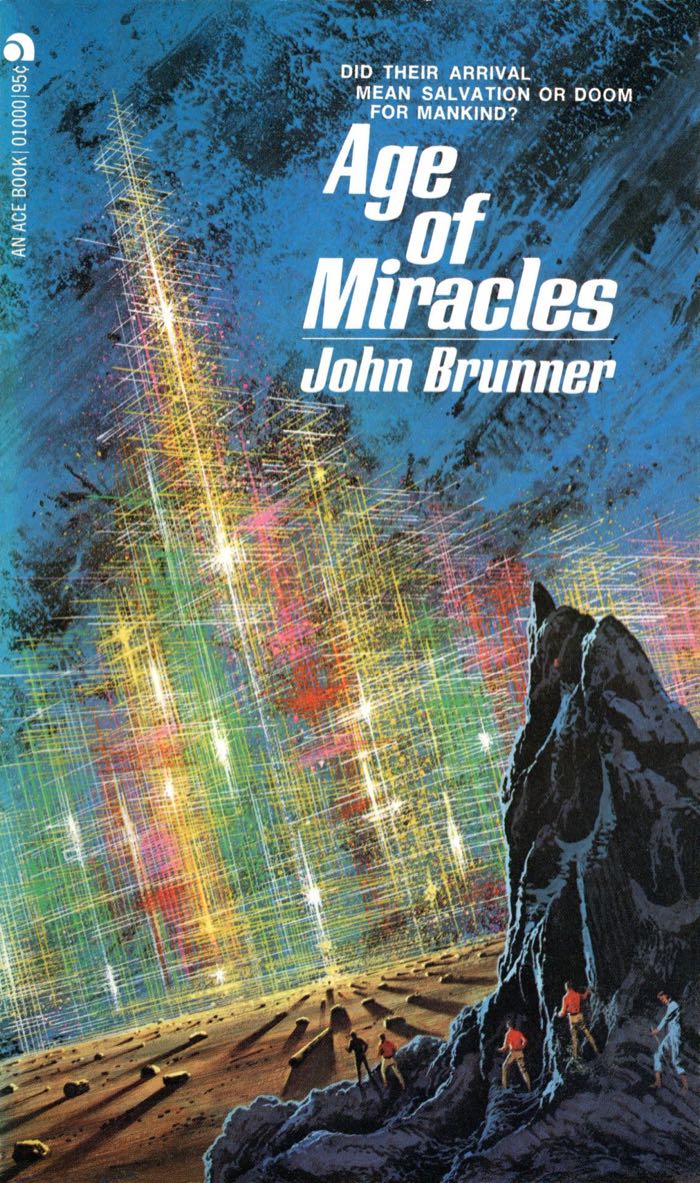Age of Miracles
Reviewed date: 2007 Dec 28
Rating: 2
300 pages
Age of Miracles is a workman-like novel from John Brunner. The man was prolific, but often to the detriment of quality.
The book is based around one idea, and one idea only: Earth is invaded by mysterious aliens who set up huge flickering cities of light. Anybody who gets too close to an alien city goes mad. Humanity doesn't even know for certain what the cities are; the aliens never show themselves.
While most of humanity bickers and fights over the scraps of Earth left to them, a few men try to study the alien cities and figure out what they really are. In the area of America known as Grady's Ground, a retarded young boy named Ichabod finds he has the ability to enter the alien city at will. When the American scientists discover this, they experiment by sending in men in hypnotic trances that make them regress to a state of childhood. The experiment is successful.
The alien cities turn out to be transport nexi. So of course, the humans hop aboard and begin exploring other planets, setting up permanent colonies. Yay, it's a happy ending.
As with many Brunner books, Age of Miracles contains a metaphor to describe humanity. Men are rats. What can a rat do to harm man? Not much other than be a pest. Similarly, mankind can do little of consequence to affect the aliens. At best, man might be able to prod the aliens into destroying them, just as a rat infestation prompts men to lay poison and traps. But rats do one other thing: rats get on ships. Rats get on ships. They go everywhere, cover the globe. The species survives. Mankind plays the rat by riding the alien transport system to other planets.
Age of Miracles is dystopian and depressing, as any good British novel should be. Brunner also injects his usual meanspirited jabs at religion. He is apparently incapable of recognizing that religion can be a positive force in the world. Brunner portrays all religion as exploitative and xenophobic, and all religious leaders as hypocritical and manipulative. It's a sad testament to Brunner's closed-mindedness, and it mars an otherwise unexceptional book. Now it's unexceptional and petty.
